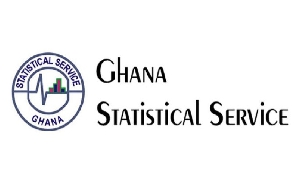About 45.6 percent of Ghana’s population of the 30.07 million are currently in a state of multidimensional poverty, a new report by the Ghana Statistical Service (GSS) has revealed.
According to the Multidimensional Poverty Index (MPI) report, a person is multidimensionally poor if he or she is deprived in at least one third of the weighted indicators. The indicators that contribute most to multidimensional poverty in Ghana are lack of health insurance coverage, undernutrition, school lag and households with members without any educational qualification.
The MPI requires an individual to be deprived in multiple indicators at the same time. The intensity of poverty is 51.7 percent, which means that poor people experience, on average, more than half of the weighted deprivations. The MPI, which is the product of the incidence and intensity of poverty, is 0.236.
From the trend analyses, the Government Statistician, Prof. Kobina Annim indicated that there has been substantial progress in multidimensional poverty reduction.
The incidence of multidimensional poverty in Ghana reduced by nine percentage points from 55 percent in 2011 to 46 percent in 2017. The intensity of poverty also reduced from 54.2 percent in 2011 to 51.7 percent in 2017, showing that the improvement is ‘pro-poor’.
The MPI reduced by 0.062 from 0.298 in 2011 to 0.236 in 2017.
“The differences observed in the incidence and intensity of multidimensional poverty are statistically significant, indicating substantial progress in multidimensional poverty reduction over time in the country,” the Government Statistician said.
“We also observed statistically significant progress being made across all of the 12 indicators of multidimensional poverty among the poor except inadequate housing and school attendance,” he added.
Based on the results, Prof. Kobina Annim said, it is paramount that resources are allocated to the Health Sector in terms of health insurance coverage and nutrition, and efforts coordinated to increase school attainment among the populace and reduce the number of school-age children that are not in school and their counterparts who are two or more years behind in school.”
“Complementary policies should also be adopted to reduce the co-occurrence of multidimensional and consumption expenditure poverty in the country. Going forward, the Ghana 2020 Population and Housing Census will engender MPI analyses at the district/municipal and locality levels to inform specific and efficient allocation of resources,” Prof. Annim recommended.
Business News of Thursday, 30 July 2020
Source: goldstreetbusiness.com
45.6% of Ghana’s population are multidimensionally poor - GSS report
Entertainment
















